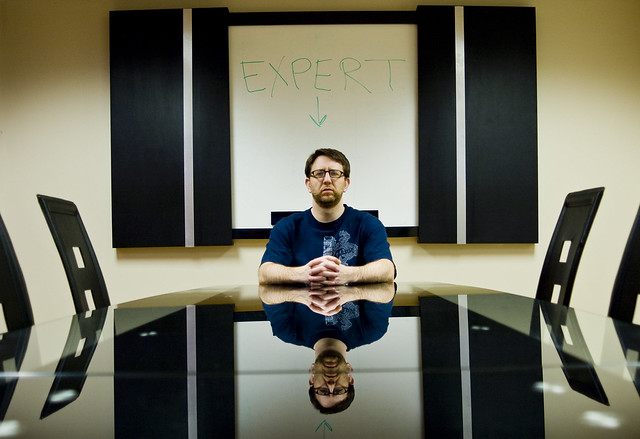
Peak performance is about paradox. Be intense and stay relaxed at the same time. Play with bravado and humility simultaneously. Be fully trained nearly beyond the bounds of health – and fully rested too.
The bigger picture of peak performance is the same. When we commit to big goals, we can be seduced by the expectations that go with them. We can lose track of the work needed to get there and lose sight of our progress. Both of these diminish our potential. Today, we’ll talk about setting aside expectations and keeping connected to progress.
PERSPECTIVE FOR LONG-TERM DOMINANCE
Perspective makes the experience of pursuing goals more effective and rewarding.
While it’s useful to attack our huge goals and aspire to greater achievement it’s also important to keep things in perspective and to celebrate successes. Let’s say your huge goal is dominance. You want to be the number one company or the number one athlete or have the greatest social impact of any activist in history. If our expectation is achieving that at the next milestone, we are setting ourselves up for frustration. Becoming the Dominant One can feel like trudging forward, but there is a more rewarding, effective road.
A problem with enormous goals like dominance is that they are always in the future until they aren’t. Sometimes we only see dominance in retrospect.
In the meantime, it can be a pretty bleak road where we only see disappointment at not meeting our expectations. Even the victories seem smaller than we want.
But let’s step back for some perspective. What seems disappointing today might have been an unimaginable performance five years ago. Most of the time we don’t see that. Our progress is entangled with end goals and ego. Expectations. We’ve lost sight of how wonderfully we are moving forward, and with that we’ve lost an opportunity to be even more dominant.
CONFIDENCE
Seeing progress gives us access to confidence. When we are bound by expectations, our self-talk might sound like “why is it never good enough?!?!?!” or “of course! Another mistake that puts me behind everyone else.”
Freeing ourself from expectations with a bit of perspective, we are free to say “that’s not the level I’m ultimately going for, but it’s so much better than last time.” We give ourselves credit for progress, but there’s something else available. One of the key factors in clutch, dominant performance is confidence or bravado. By giving ourselves credit, we also give ourselves permission to own a higher level of bravado.
Team leaders take note. If your folks have just hit their number or delivered on a deadline, give ample time for celebration. Talking about the bigger goals too soon spoils the fun and prevents the team from locking in their well-earned bravado. It’s also possible that your newly confident team might have bigger, better ideas for what’s possible next.
TINKERING TO OPTIMIZE
Seeing progress also lets us evaluate and see new opportunities. We’ve gained bravado. Now we get to add a dose of humility to shake things up.
True dominance requires tinkering. It requires a paradox of complete immersion in generating momentum toward the goal AND self-awareness of what’s working and what’s not.
Sometimes we get so inside our pursuit of a goal that we lose sight of what it actually takes to succeed. We become reactive instead of strategic. We might take short cuts, sacrificing long-term success for a short-term win. In this moment, we might feel frustrated or drifting or fuzzy about how we’ll ever get where we want to go. It’s at this point that many people give up.
Not you.
By taking a step back and seeing your progress, you can access both the bravado of a champion and the humility that makes a dominant force.
Take an honest look at what’s working and make a comprehensive assessment of what’s needed next. Remember, we don’t always know everything the ultimate goal will require of us. Pausing gives us a chance to notice things like:
Are my assumptions flawed?
What are others doing that might work for me?
What are others doing that might be completely wrong for me…or even them?
How am I enjoying the experience of getting there?
Where can I cultivate a surprising dominant advantage?
We pause. We tinker. Then we do it again.
And through the tinkering, we discover opportunity.
Now go tinker!



